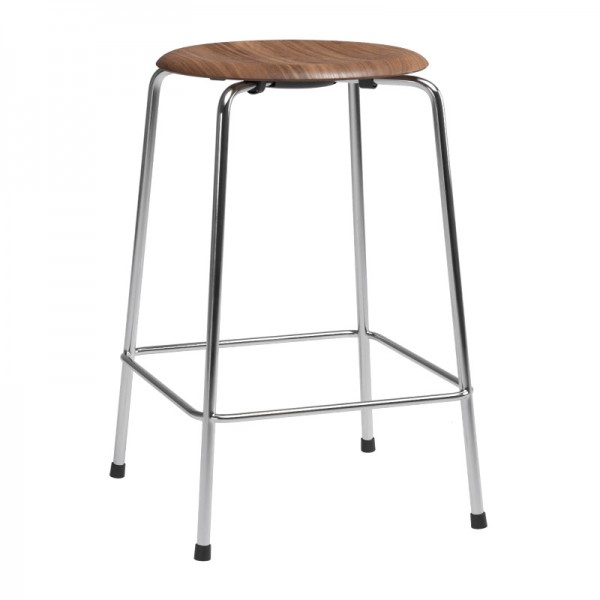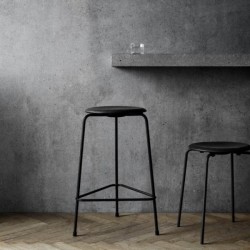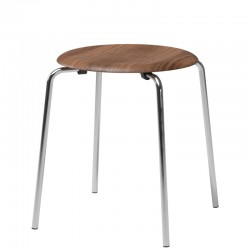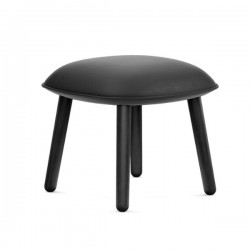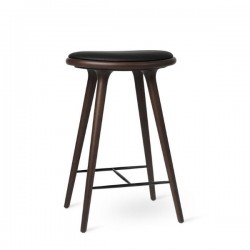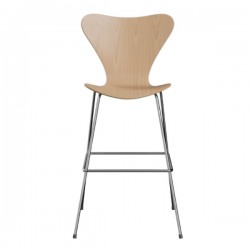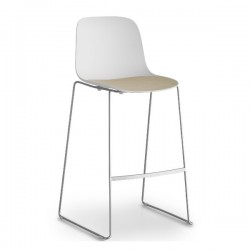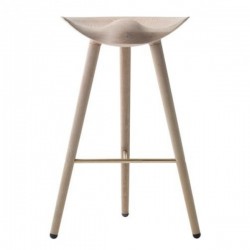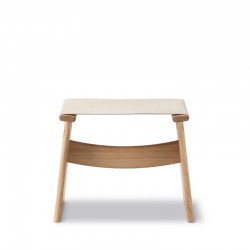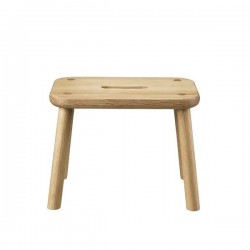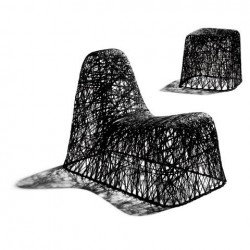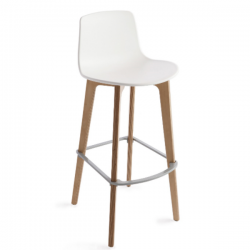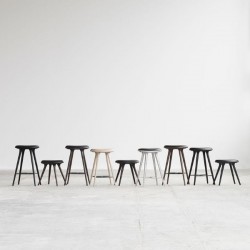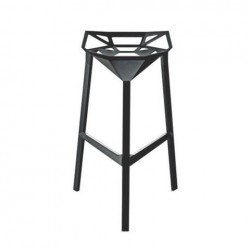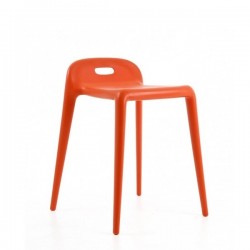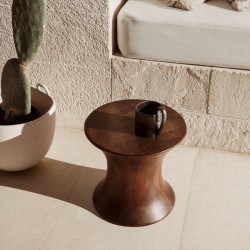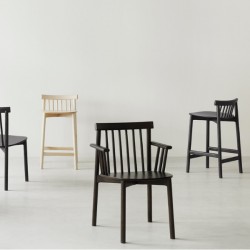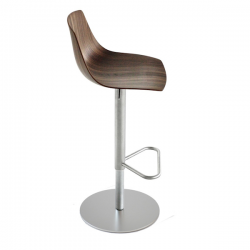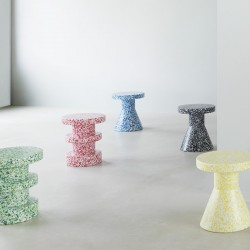Fritz Hansen High Dot Stool
Designer:
Arne Jacobsen
€304.96
Availability if not in stock accessories 2 weeks furniture 6 weeks
With its elevated base and multiple finish options, the High Dot™ transforms Arne Jacobsen’s popular Dot™ stool into a beautiful, simple high seating for counters, bars, or high office tables. Made with the everyday in mind, a footrest offers added stability and sitting comfort, while its range of finishes ensures it fits seamlessly into any setting. The 4-legged High Dot presents a more stable alternative to the 3-legged version.
It has a four-sided footrest in tubular steel fixed to the extended legs, preserving the visual harmony of the design’s clean, simple construction.
- Size Description
Height 65 cm Diameter 44cm
Height 76 cm Diameter 34 cm
-
Arne Jacobsen
<p>Arne Jacobsen (1902-1971) was trained as a bricklayer and graduated from The Technical Society's school in 1924 and Copenhagen Art Academy 1927. In 1928 he received the Academy's gold medal, but prior to this, when only 23, he was awarded a silver medal at the 1925 Paris World Exhibition - the first of numerous honours that became a natural accompaniment to his artistic activities, his untiring search and his brilliant conceptions, made manifest by many successes in competitions at home and abroad. His main works include: town halls in ?rhus, Søllerød, Rødovre and Glostrup, SAS-building (Royal Hotel) in Copenhagen, Munkegårds School in Gentofte, Toms Chocolate Factory in Ballerup, The Danish National Bank headquarters, a sports hall in Landskrona, St. Catherine's College, Oxford and Hamburgerische Elektrizitätswerke's administration building. In 1932, Arne Jacobsen began collaboration with Fritz Hansens Eft. A/S, and over a period of years designed a series of chairs which are now recognised as milestones in the development of modern furniture. They include "The Ant" (1951), "The Egg" (1957), and "The Swann"(1957). But he was also an innovator in other design fields, such as the tableware series "Cylinda-line" in stainless steel. Arne Jacobsen was a professor at the Art Academy, and received honorary doctorates from a number of foreign universities and academies. Cylinda-line was awarded the ID-prize 1967 by The Danish Society of Industrial Design and The International Design Award 1968 by The American Institute of Interior Designers.</p>
다음도 좋아할 겁니다
가격
€304.96
Fritz Hansen Dot Stool
가격
€222.31
Related products
Mater High Stool Dark Stained Beech 69cm
가격
€885.12
Fritz Hansen Series 7 Bar Natural Veneer
가격
€660.33
Lapalma Seela Stool
가격
€245.00
By Lassen ML42 Bar Stool
가격
€710.74
Fredericia Seto Stool
가격
€702.48
FDB Mobler J181 Sønderup Stool
가격
€139.67
Goods Random Stool
가격
€354.55
Enea Lottus Stool Wood
가격
€435.00
Mater High Stool Sirka Grey Stained Oak
가격
€929.75
Magis Stool One
가격
€352.89
Magis Yuyu Stool
가격
€112.40
Ferm Living Spin Stool
가격
€313.22
Normann Copenhagen Pind Barstool 65
가격
€388.43
Lapalma Miunn Stool Round Base
가격
€429.00
Normann Copenhagen Bit Stool Cone
가격
€177.69


 EUR
EUR


